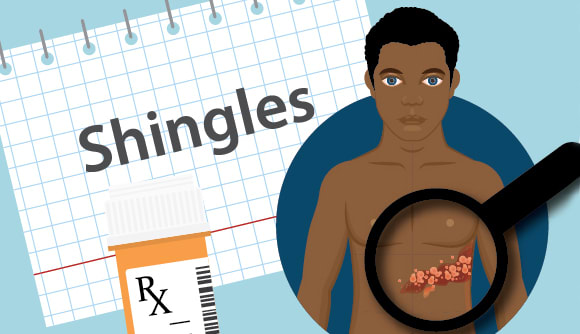Slowing Alzheimer’s
These 6 lifestyle changes can help.
Article Author: Guest Columnist
Article Date:

Our guest columnist is Joanna Lewis, PharmD, pharmacy compliance coordinator at Baptist Health.
It’s likely you know someone who has experienced the most prevalent form of dementia, Alzheimer’s disease, which affects over 6 million people in the United States. It's a common misconception that this is just a disease of aging adults when, in fact, there are around 200,000 individuals under age 65 living with early-onset Alzheimer’s.
Risk factors and signs
Symptoms of the disease include:
- Continuous decline in memory
- Impaired judgment
- Personality change
- Difficulty completing familiar tasks
Alzheimer’s is defined by specific changes in the brain that occur before symptoms appear. Risk factors include:
- Aging
- Diabetes
- High blood pressure
- Brain trauma
- Family history
- Smoking
Based on our current understanding, the development of Alzheimer’s occurs through several mechanisms in the brain, including abnormal clumps, tangled bundles of fibers, and loss of connection between neurons. Scientists continue research to understand the changes in the brain associated with the disease.
Can you prevent Alzheimer’s?
Though there's still much to be learned about how to prevent or reverse cognitive decline, research has shown certain lifestyle modifications can help, including these six areas of focus.
1. Exercise
Studies have found those who were physically fit were almost 50% less likely to develop dementia in older age than the least fit participants. The same study reported that participants who didn’t exercise but started to do so later in life showed the same risk reduction for dementia as those who were physically active all along. It’s never too late to start exercising to receive cognitive benefits! The Centers for Disease Control and Prevention (CDC) recommends adults over age 65 get 30 minutes of moderate-intensity activity five days a week to improve overall health.
2. Nutrition
Not only does good nutrition help with risk factors for conditions like heart disease and diabetes, but it also may protect the brain through antioxidant and anti-inflammatory processes. Though there’s no hard evidence that eating or avoiding certain foods directly lowers your Alzheimer’s risk, we do have clues that eating green, leafy vegetables, fish and a low-sugar/low-salt diet may lower the development of dementia.
3. Supplements
Omega-3s are found in fatty fish like salmon and mackerel, vegetable oils, nuts and seeds, and have shown anti-inflammatory and antioxidant effects on the brain. A 2014 study showed that vitamin E may help people with Alzheimer’s to continue performing daily functions. This vitamin is thought to contribute to brain health by reducing oxidative stress, but it doesn’t prevent Alzheimer’s or reduce other symptoms.
Vitamins B6, B9 (folate) and B12 help break down an amino acid called homocysteine, which has been shown to contribute to dementia and Alzheimer’s.
Though you may have heard of Ginkgo biloba – a supplement made from ginkgo trees – for use as a “memory pill,” research doesn't conclusively back the claim. One of the largest studies trying to connect ginkgo to memory was the Ginkgo Evaluation of Memory (GEM) study. With 3,000 participants taking a supplement over the span of six years, the results did not show that ginkgo lowered the risk of developing dementia.
4. Sleep
Although researchers are still debating whether poor sleep exacerbates dementia or if dementia leads to poor sleep, they agree there is a connection. In 2018, the National Institutes of Health (NIH) reported sleep deficits might increase the beta-amyloid proteins in the brain linked to Alzheimer’s. Another study that followed people over age 25 showed a 30% increased dementia risk in 50-, 60- and 70-year-olds who got six or fewer hours of sleep a night. Bottom line? Set up a routine that primes your body for the recommended seven to nine hours a night.
5. Mentally stimulating activities
Just like we exercise the body, exercising the brain is also important in preventing cognitive decline. Mental activities promote blood flow in the brain and encourage new neural pathways. Reading, doing puzzles, visiting museums, taking a course, playing an instrument or doing a similar hobby are all ways to keep your brain active.
6. Social engagement
Connecting with others is another great way to keep your brain stimulated. Not only is it associated with a lower risk of Alzheimer’s, but it also benefits overall health and the delay of dementia. When people feel good about their social connections, they're more likely to make healthier lifestyle choices. Visit family and friends, engage in new social activities, join a club, volunteer or get involved in your community to stay socially active.
Concerned about memory loss?
For more advice on preventing dementia and Alzheimer’s and living a healthy lifestyle, talk with your primary care physician. If you need to find a primary care doctor that’s right for you, fill out our online appointment request form or call 904.202.4YOU. To learn more about a unique type of primary care for adults ages 65+ who want to be proactive with their health, visit AgeWell Center for Health.



